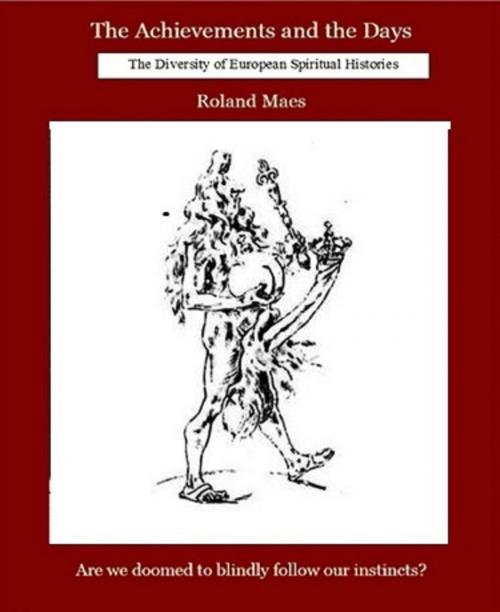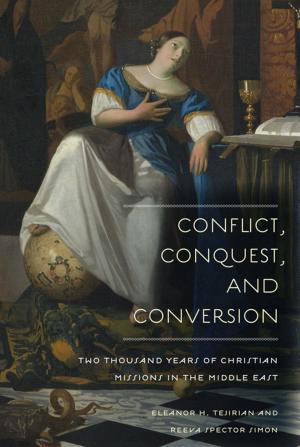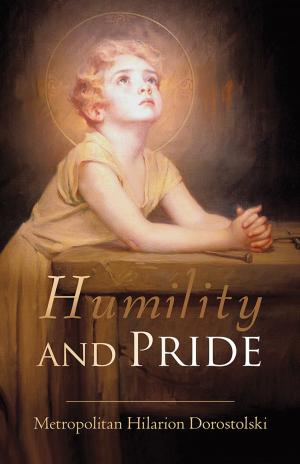Book IV. The Diversity of European Spiritual Histories
Nonfiction, Religion & Spirituality, Christianity, Church, Church & State, Philosophy, History, Criticism, & Surveys, General Christianity| Author: | Roland Maes | ISBN: | 1230001290950 |
| Publisher: | Roland Maes | Publication: | July 28, 2016 |
| Imprint: | Language: | English |
| Author: | Roland Maes |
| ISBN: | 1230001290950 |
| Publisher: | Roland Maes |
| Publication: | July 28, 2016 |
| Imprint: | |
| Language: | English |
The prospective ruin of Christendom was repeatedly predicted at the beginning of the fifteenth century.
In 1494, Sebastian Brant wrote “ship of fools”. In 1511, Erasmus wrote the Prize of Folly. In 1515, Thomas More wrote Utopia. It describes the repugnant state of the French and English political elites of his day and exposes the dramas and destructions France will generate if its policy of expansion –with the help of the Turks-were pursued.
The warnings were thus abundantly given, and the causes of the disaster recognized: the rise of powerful selfish Nation-States, the policy of expansion of France and its alliance with the Ottomans, the depravation of the Church, the weakness of the Germanic Empire. Indeed, ten years later, it abandoned Hungary to the Turks (in 1526), and the Turks were at the doors of Vienna in 1529.
The Christian revolt initiated on October 31, 1517, when the Augustinian monk Luther placated his 95 theses on the door of the church of Wittemberg. Ten years later, the sack of Rome by the Lutheran troops of the catholic emperor Charles V put a final point to Rome's predominance, in 1527. At the peace of Westphalia (1644-1648), the pope's ambassador was not allowed to attend the negotiations. Egotistic national States were created and needed no president.
The revolt of the nations started in the US: on the 4th of July 1776, 240 years ago, Thomas Jefferson proclaimed a right to “… liberty and the pursuit of happiness.” Thirteen years after the American revolt, in 1789, France also revolted against contingency and corruption but changed in no way toward a more humane course.
Chapter 14 of this book registers the progress in humanness accomplished in the West by Roman Christianism. Thomas Aquinas developed a “Somma” that established the authority of Reason over Faith. However, the liberty given to an individual to think is a notion alien to the immense majority of the human cultures. The cohesion and security of human groups assembled in selfish nations is maintained by the application of tremendous social pressures on challengers of the mainstreams of thought.
Chapter 15 analyzes the capacity of Judaism, Islam and Christianity, to promote a humane conduct. For the Church, puritanism, xenophobia and violence are deviations from the evangelic message. The Torah encourages hatred, ethnocentricity, exclusion and violence, and appeals to tolerance are repressed, even in contemporary times. Israel has embraced a Hebraic talibanisation. Mohamed made the Faith of Abraham acceptable to Nomads with humane as well as inhumane precepts. The current permanent occupation of Europe by Moslems who refuse to adopt the Western mode of living leads to social instability.
Chapter 16 focuses on the French imposture. It is fashionable to hold that the rise of Nation-States at the expense of the Church was accompanied by economic development and social progress, by allowing access to the wealth of the Church and the application of their richness to useful ends. This was perhaps partially true in England but nothing is further from the truth in France, where an immediate social disaster took place with the callous exploitation of the population. This social disaster was amplified in 1789, when France rejected God and the Church. Religion creates a social link and participates in a fundamental way to the identity and the culture of a population. It is this sacred social coherency that the French Revolution jeopardized.
The prospective ruin of Christendom was repeatedly predicted at the beginning of the fifteenth century.
In 1494, Sebastian Brant wrote “ship of fools”. In 1511, Erasmus wrote the Prize of Folly. In 1515, Thomas More wrote Utopia. It describes the repugnant state of the French and English political elites of his day and exposes the dramas and destructions France will generate if its policy of expansion –with the help of the Turks-were pursued.
The warnings were thus abundantly given, and the causes of the disaster recognized: the rise of powerful selfish Nation-States, the policy of expansion of France and its alliance with the Ottomans, the depravation of the Church, the weakness of the Germanic Empire. Indeed, ten years later, it abandoned Hungary to the Turks (in 1526), and the Turks were at the doors of Vienna in 1529.
The Christian revolt initiated on October 31, 1517, when the Augustinian monk Luther placated his 95 theses on the door of the church of Wittemberg. Ten years later, the sack of Rome by the Lutheran troops of the catholic emperor Charles V put a final point to Rome's predominance, in 1527. At the peace of Westphalia (1644-1648), the pope's ambassador was not allowed to attend the negotiations. Egotistic national States were created and needed no president.
The revolt of the nations started in the US: on the 4th of July 1776, 240 years ago, Thomas Jefferson proclaimed a right to “… liberty and the pursuit of happiness.” Thirteen years after the American revolt, in 1789, France also revolted against contingency and corruption but changed in no way toward a more humane course.
Chapter 14 of this book registers the progress in humanness accomplished in the West by Roman Christianism. Thomas Aquinas developed a “Somma” that established the authority of Reason over Faith. However, the liberty given to an individual to think is a notion alien to the immense majority of the human cultures. The cohesion and security of human groups assembled in selfish nations is maintained by the application of tremendous social pressures on challengers of the mainstreams of thought.
Chapter 15 analyzes the capacity of Judaism, Islam and Christianity, to promote a humane conduct. For the Church, puritanism, xenophobia and violence are deviations from the evangelic message. The Torah encourages hatred, ethnocentricity, exclusion and violence, and appeals to tolerance are repressed, even in contemporary times. Israel has embraced a Hebraic talibanisation. Mohamed made the Faith of Abraham acceptable to Nomads with humane as well as inhumane precepts. The current permanent occupation of Europe by Moslems who refuse to adopt the Western mode of living leads to social instability.
Chapter 16 focuses on the French imposture. It is fashionable to hold that the rise of Nation-States at the expense of the Church was accompanied by economic development and social progress, by allowing access to the wealth of the Church and the application of their richness to useful ends. This was perhaps partially true in England but nothing is further from the truth in France, where an immediate social disaster took place with the callous exploitation of the population. This social disaster was amplified in 1789, when France rejected God and the Church. Religion creates a social link and participates in a fundamental way to the identity and the culture of a population. It is this sacred social coherency that the French Revolution jeopardized.















